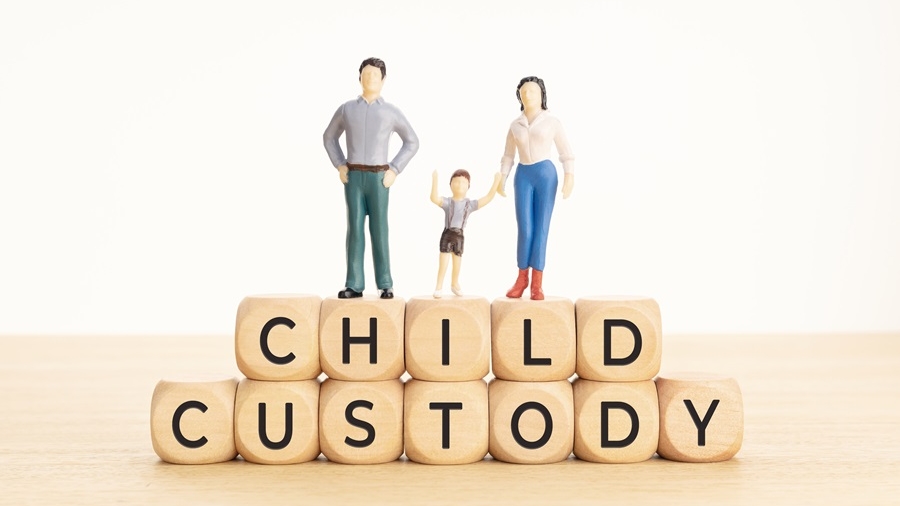Child Custody in Claremont, CA
Table of Contents
ToggleChild custody is the legal relationship between a parent and their child in which the parent is responsible for raising the child and has the right to decide for the child. In Claremont, CA, child custody becomes a problem when two parents decide to split. However, suppose you and the other parent separate amicably. In that case, both parents can agree on a parenting plan that details the period you both have custody of your child.
However, if both parents cannot agree on a parenting schedule, the court must decide based on your child’s best interests. This aspect of California family law can be extremely complicated. Therefore, you must speak with an experienced California child custody attorney.
If you are battling over child support issues in Claremont, CA, you need a lawyer you trust to represent you. The Law Office of Stephen Gassner in Claremont can assist you in solving your child support problem and will work hard to give you the individualized, careful service you deserve.
The Types of Child Custody in California
A judge may issue many kinds of child custody orders. When making a child custody decision, the judge will decide whether your child would benefit more from living with you, the other parent, or both. The judge would also examine what is in your child’s best interest while determining child custody arrangements. Here are the different kinds of child custody arrangements:

Legal Custody
Legal custody determines who, if either you or the other parent, or both of you, has the authority and duty to make crucial parenting decisions about your child’s health, education, and welfare. There are two types of legal custody court orders:
Sole Legal Custody
Under a sole legal custody arrangement, you or the other parent will have complete decision-making authority over your child’s health, safety, and welfare. You can use sole legal custody entirely or partially. So that means only one parent (hence the word, sole, in the title) can make those decisions. These decisions include housing, healthcare, education, and even religion if sole custody is awarded for that child. Following a court’s determination that domestic abuse has occurred, sole legal custody is frequently granted.
Joint Legal Custody
Section 3002 of the California Family Code states that “joint custody” denotes a child’s physical and legal custody. If both parents have joint custody, you will have equal decision-making authority about your child’s health, education, and well-being. Both parents will be the child’s primary caregivers, but your child may spend less time with you than the other. It is due to the difficulty of adequately dividing time in half when you have obligations like a job and education.
In most cases, courts prefer to provide joint custody orders over sole custody so that you can participate and have an equal voice in your child’s life. But if both parents are granted shared legal custody, it is crucial to remember that there is equal decision-making power between the two parents.
For example, consider the scenario when you cannot agree on a shared custody plan that addresses the child’s welfare, education, or medical needs. In that situation, you and the other parent must go back to court so that the judge can decide what is best for your child.
The court may conclude that both parents should not share legal custody in certain circumstances. For example, a parent’s incarceration, a history of severe mental illness, or domestic violence are all potential causes not to award joint custody.
Physical Custody
A physical custody order specifies where the child will reside with either parent. Physical custody orders can be under two different circumstances:
Primary Physical Custody
If one parent has sole physical child custody, the child will stay with and be under the supervision of that parent. However, a visitation order may still be issued by the court. Therefore, your child will reside with either you or the other parent, depending on who is awarded custody; the other parent will likely be given visitation privileges.
Joint Physical Custody
According to this agreement, each parent must have substantial physical custody. Therefore, ensuring that your child spends significant time with you and the other parent is the legal goal of joint physical custody. As a result, your child will live with you and the other parent. However, time may not be distributed equitably because of school and work.
Frequently Asked Questions
What Is Child Custody?
A custodian is someone who looks after or safeguards another person. Child custody in a legal context refers to the designation of one or more people to care for and raise a child under 18.
When Does Court-Ordered Child Custody End?
Court-ordered child custody usually ends when:
- The child turns 18
- The child gets married or enlists in the military
- The court terminates support or custody
- The child passes away before turning 18
The age of majority in California is 18 years old, at which point a person is regarded as an adult. Therefore, the laws governing child custody are no longer valid.
How Is Child Support Calculated in California?
California has developed a formula that parents and attorneys can use to determine how much child support a parent may owe or receive. The following details are considered in this formula:
- The total time each parent spends with their child during parenting or visitation.
- Every source of income for the parent, including unreported income like alimony or unemployment.
- Amounts of permitted income deductions, like those for federal and state taxes, health insurance premiums, and union dues.
- A parent’s contribution to the support of a kid from a previous relationship.
- Any costs the parent may incur because of their employment.
- Pertinent expenses include daycare, special schooling, travel, or medical care.

Compassionate Child Custody Lawyer in Claremont, CA
Hiring a lawyer to represent you before a family court is crucial in ensuring your child support case is decided justly. Your child’s fundamental requirements and the right to a comfortable, happy life are essential to one’s peace of mind, and the Child Custody Legal Team at the Law Office of Stephen Gassner is aware of this.
The formula for calculating child support appears simple but can only be as fair and precise as the given data. Not all parents are truthful with the court; some may attempt to trick or manipulate the system to reduce child support payments. For instance, some parents may conceal assets or income to lower the monthly support they must pay. Others may assert that they need help finding employment or that their earning potential is lesser than it is to receive more assistance. With thorough research and the use of evidence, these problems can frequently be remedied. Should your circumstances or those of your kid change, an attorney can also assist you in determining a new monthly child support amount. The Law Office of Stephen Gassner will assist you if you are starting a child custody battle before a California family judge to help you get the result you need.
Law Office of Stephen Gassner
324 N Mountain Ave, Upland, CA 91786, United States
(909) 937-7000

Mr. Gassner is a Certified Family Law Specialist, certified by the California State Bar Board of Legal Specialization. He is also a member of the Association of Certified Family Law Specialists and a member of the California Lawyers Association Family Law Section.


